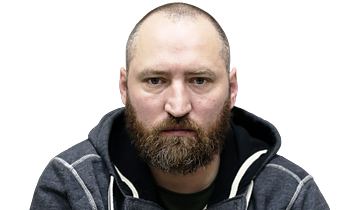This is the right and much needed path. After all, it was the SBU security service that planned all operations in the ATO zone because it was a counterterrorist operation, and fighting terrorism is the SBU's function, not the Army's, according to the law.
However, in fact, there are no "terrorists" in Donbas - there are Russia's regular troops, paramilitary groups, and Russian private military companies. And they have been fighting against Ukraine forces applying common military tactics. That is, it's not ATO that's ongoing in Donbas, it's a military operation. It's war.
This misconception, along with the fact that the military could not control operations, was confusing to many. And to some extent, in some episodes, we suffered losses precisely because the military were not involved in operation planning.
We will not say who is to blame here. Everyone attempted to act within the framework of the current legislation. And now it is changing...
Following the signing by the president of the law on "reintegration" of Russian-occupied territories in Luhansk and Donetsk regions, the ATO in Ukraine is completing
Now the military will gain more powers to act in the area where a military operation will be conducted. And, accordingly, they will be able to improve their tactical and stationing conditions, enhance their tools for taking more effective measures to protect and defend the country from Russian aggression.
This is the most important thing that we will now get: the military will have more powers. But, accordingly, they will bear more responsibility.
I don't believe that this change in the format of repelling the aggressor will drastically affect the lives of civilians living in the combat zone or front-line areas. Ukrainian soldiers don't enter households without their owners' permission. Our military even couldn't occupy any school premises... Military servicemen in the ATO zone were to some degree deprived of their basic rights. But now they will be able to protect the sites in the areas where they are stationed. So far, for the military to get into a certain state facility in these territories, they had to have a bunch of papers signed. This is a very complicated process, and that's because, in fact, we have by far waged war in peacetime conditions, which is pure nonsense!
Now the military will gain more powers to act in the area where a military operation will be conducted
But this is a "hybrid war," and experts around the world are still wondering how challenges within such a war can be tackled at all. Ukraine is a perfect example...
So, local residents are unlikely to be affected by the change of format. At present, the locals live the same way they used to before the war. In this respect, we have a very infantile population: as the war came to their land, they just stuck to their houses instead of fleeing or doing at least something. Only if their house is hit do they start considering moving elsewhere. This is a huge problem, indeed.
I have seen terrible things in Sloviansk, where, for example, there once was an artillery duel between the Russians and the Armed Forces of Ukraine, and there was this small village right between the warring parties. The village was not fired upon but the shells were flying right over it. At the same time, despite hearing all those explosions and seeing projectiles flying overhead, people would just go out and do their garden work, digging out potatoes, living on...
Psychology calls this phenomenon "negative hypnosis", when people simply refuse to notice negative things: "If I don't see it, it's not happening". But this is pure infantilism.
Returning to the issue of change... I think that the military will in the first place show a more pro-active stance toward countering smuggling because they will have more capacities and resources. For local residents, control routine at checkpoints and crossings will get somewhat tighter. They will be checked more thoroughly, but that's how it's supposed to be anyway.
However, I think that for some time, format changes will not a burden. And if the hostilities escalate once Russia after their presidential elections resorts to more provocations (they never stopped, really, but everyone expects that there will be more as today Luhansk region is already on fire, we suffer more casualties each day), our response will change as well.
Myroslav Gai is a deputy chief of board of reserve troops, director of Peace and Co. charity foundation


